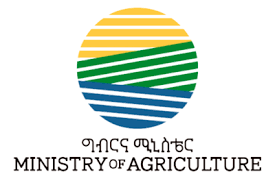
Agriculture Investment and Input Supply Developement
Sector and Executives>Agriculture Investment and Input Supply Developement

State Minister
Dr Sofia Kassa
Agriculture Investment and Input Supply Developement
Duties and Responsibilities
The agriculture and horticulture development sector, overseen by the Ministry of State and accountable to the Ministry of Agriculture, holds a comprehensive array of responsibilities crucial for advancing productivity, sustainability, and innovation within the agricultural and horticultural domains.
Key tasks include expanding extension and training services to benefit farmers, pastoralists, private investors, and society members engaged in crop cultivation. Additionally, the sector formulates policies and strategies to drive sectoral growth, collaborates with research institutions to conserve national plant genetic resources, and fosters coordination with stakeholders to enhance production and productivity.
Moreover, it leads initiatives to monitor and guide the implementation of climate-resilient practices and green economy principles. Through the implementation of ecological agricultural practices and technology, the sector ensures efficiency, sustainability, and support for stakeholders. It facilitates seed multiplication, provides technical support, and delivers crop development recommendations based on climate data.
Furthermore, it identifies, evaluates, and disseminates technologies and practices to mitigate production losses, improve product quality, and reduce environmental impact. The sector prioritizes knowledge and skills enhancement, offering capacity building initiatives and establishing training centers. Ultimately, it plays a pivotal role in strategic planning, resource allocation, and information dissemination, driving productivity and growth while ensuring effective governance and stakeholder engagement within the agricultural and horticultural sectors.
Sector Lead Executives Duties and Responsibilities
- Lead Executive of Supply chain
- Lead Executive of Agricultural Mechanization
- Lead executive of Agricultural investment and product marketing
- Lead Executive of Urban Agriculture development
The role ensures a robust resource supply system through meticulous policy formulation and implementation based on extensive research. It conducts research to optimize the accessibility, quantity, quality, and variety of resources for farmers and pastoralists.
Capacity building initiatives are undertaken for stakeholders involved in procurement and distribution, both domestically and internationally.
Quality control measures are rigorously monitored to ensure optimal resource delivery to farmers, pastoralists, investors, and organized communities. An operational system is established to manage production, storage, and transportation logistics effectively. Collaboration with research centers and resource providers ensures the provision of biologically effective production resources.
The role actively participates in discussions, proposes and develops resource-related development projects, and improves operational systems for efficient demand forecasting and distribution. Best practices in resource distribution are synthesized and disseminated. Strategies are devised to enhance coordinated operations, ensuring timely input supply to farmers and pastoralists. Collaboration with cooperatives, government agencies, and development investors facilitates resource procurement and distribution. Continuous evaluation and adaptation enhance preparedness and intake capacity, fostering synchronized agricultural inputs expansion alongside watershed and agricultural development activities.
The role oversees the implementation of strategic agricultural mechanization resource procurement strategies, policies, and systems. It shapes input strategies to drive agricultural mechanization initiatives comprehensively.
Monitoring procurement, storage, and distribution performance ensures quality, efficiency, price competitiveness, and superior service delivery to stakeholders.
By gathering information on mechanization levels and community practices in watershed development areas, it identifies challenges and proposes sustainable solutions. It facilitates data organization through modern databases and planning tools, analyzing collected data for informed decision-making. Best practices and new findings are gathered to expand mechanization resources in coordination with watershed and agricultural development activities, contributing to technical procedure preparation.
The role supports short-term projects, new operational systems, and regulatory frameworks for mechanization inputs, providing community awareness training based on prepared documents. It disseminates advanced technologies and guidelines to enhance mechanization in watershed development, offering professional support and ensuring adherence to plans and instructions. Monitoring and reporting on mechanization implementation effectiveness in watershed activities is integral to supporting their successful integration and impact assessment.
Integrated support is provided to investors, facilitating connections with local farmers and pastoralists via contract farming and ensuring performance monitoring. Infrastructure and resource supply for agricultural investment are coordinated timely and at required standards. The role also focuses on enhancing agricultural product competitiveness through improved production, quality control, and market access, particularly for export products.
Furthermore, it promotes dialogue among stakeholders through consultation platforms to address challenges and leverage opportunities in agricultural investment marketing. Development of a national information system and dissemination of best practices enhance agricultural production contracts and institutional expansion. A customer satisfaction verification system ensures service excellence and continual improvement based on feedback.
The Executive aims to foster job creation and sustainable urban agriculture development through comprehensive policy formulation, strategic planning, and capacity building.
It conducts thorough studies to identify local agricultural resources and potential employment opportunities, particularly targeting youth involvement. It designs and implements innovative business models that enhance the value chain of agricultural products, ensuring feasibility and scalability.
Collaborating closely with regional and federal educational and vocational institutions, it provides specialized training to empower citizens entering the agricultural sector. Through workshops and outreach programs, it raises awareness and promotes agribusiness thinking, facilitating access to credit and market support. It also facilitates technology adoption to boost productivity in urban agriculture.
Moreover, it fosters market linkages between rural agricultural enterprises and urban markets, encouraging economic integration. Its efforts are underpinned by ongoing research, ensuring that best practices are shared and implemented across federal and state institutions to maximize impact and sustainability.